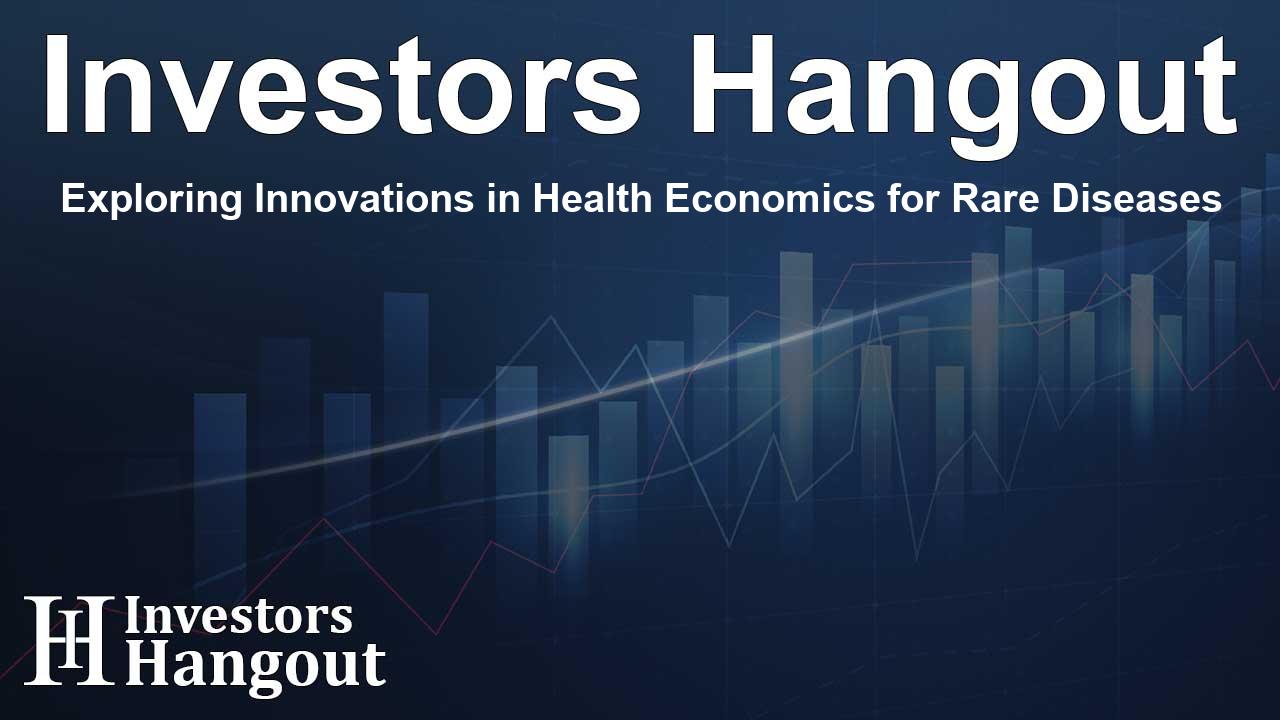Exploring Innovations in Health Economics for Rare Diseases

Understanding Health Economics in Rare Disease Therapies
In the realm of healthcare, health economics and outcomes research (HEOR) plays a vital role. Recently, a compelling exploration of HEOR's advancements in the evaluation of cell and gene therapies (CGTs) for rare diseases emerged. This assessment underlines how HEOR strategies are essential in addressing the unique challenges presented by these therapies, especially as they transition from experimental stages to approved treatments.
Transformational Impact of HEOR
As the landscape of cell and gene therapies continues to evolve, health systems grapple with significant decisions regarding evaluation, reimbursement, and equitable access to these groundbreaking treatments. The integration of HEOR methodologies allows for a better understanding of the real-world evidence (RWE) crucial for these therapies. This involves considering patient populations that often have limited treatment options and require a unique approach to efficacy and safety assessment.
The specific challenges associated with rare diseases—such as small patient populations and varied disease presentations—make traditional clinical trials inadequate. HEOR paves the way for innovative frameworks that capture the holistic value of CGTs, significantly extending beyond conventional economic models. The focus shifts toward generating long-term data that informs the effectiveness of these therapies over an extended period, providing insights that pure clinical trial data cannot offer.
Key Innovations in HEOR
An Analysis Group team, led by leading experts, collaborated with researchers to investigate how HEOR is influencing the evaluation of CGTs. Among the critical innovations observed are:
The Generation of Real-World Evidence
Real-world evidence is becoming increasingly significant in validating the long-term benefits of CGTs. The ability to collect and interpret RWE provides patients with new avenues of treatment that were not previously quantified, supporting their efficacy and safety.
Integration of Patient Feedback
Incorporating patient perspectives and preferences into the evaluation process is transforming how therapies are assessed. This acknowledgment facilitates a more holistic approach that values patient-centered outcomes as paramount.
Utilization of Advanced Methodologies
Advanced analytical techniques, often supported by artificial intelligence, are proving essential in deriving actionable insights from complex datasets. These methodologies allow for sophisticated analysis that enhances the understanding of therapeutic value.
Health Equity and Future Directions
Emerging frameworks for value assessment and reimbursement models are providing vital resources for decision-makers as they navigate the complexities of CGTs. These frameworks promote health equity by ensuring that treatments are accessible to all patients, not just those with favorable circumstances. The ongoing collaboration among researchers, healthcare providers, and regulators remains crucial for refining HEOR approaches moving forward.
In conversation about these developments, one expert emphasized the importance of understanding the broader societal implications of advancements in CGTs. The potential benefits extend beyond direct treatment, affecting families and communities significantly.
About Analysis Group and Its Contributions
Founded in 1981, Analysis Group has built a reputation as one of the leading international economics consulting firms, with a robust focus on healthcare. The dedicated health economics team works extensively in areas such as market access, clinical research, and epidemiology, providing tailored solutions to meet the unique demands of healthcare stakeholders.
Frequently Asked Questions
What is the role of HEOR in CGTs for rare diseases?
HEOR is pivotal in evaluating the value and effectiveness of cell and gene therapies, ensuring equitable access and supporting reimbursement strategies.
How do CGTs differ from traditional treatments?
CGTs are innovative therapies that target the underlying genetic issues causing rare diseases, often leading to more effective long-term outcomes than traditional models.
Why is real-world evidence important in health economics?
Real-world evidence helps demonstrate the effectiveness of therapies in typical patient populations outside controlled clinical trial settings, providing a fuller picture of treatment impacts.
What challenges do researchers face in evaluating rare disease therapies?
Researchers encounter issues such as small patient populations, variability in disease presentation, and the need for alternative efficacy assessment methods in rare disease contexts.
What is the future of HEOR in healthcare?
The future holds promise for more integrated health economics approaches, with advancements in technology and increased collaboration across healthcare sectors improving patient outcomes and access.
About The Author
Contact Kelly Martin privately here. Or send an email with ATTN: Kelly Martin as the subject to contact@investorshangout.com.
About Investors Hangout
Investors Hangout is a leading online stock forum for financial discussion and learning, offering a wide range of free tools and resources. It draws in traders of all levels, who exchange market knowledge, investigate trading tactics, and keep an eye on industry developments in real time. Featuring financial articles, stock message boards, quotes, charts, company profiles, and live news updates. Through cooperative learning and a wealth of informational resources, it helps users from novices creating their first portfolios to experts honing their techniques. Join Investors Hangout today: https://investorshangout.com/
The content of this article is based on factual, publicly available information and does not represent legal, financial, or investment advice. Investors Hangout does not offer financial advice, and the author is not a licensed financial advisor. Consult a qualified advisor before making any financial or investment decisions based on this article. This article should not be considered advice to purchase, sell, or hold any securities or other investments. If any of the material provided here is inaccurate, please contact us for corrections.
